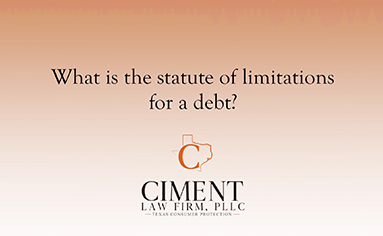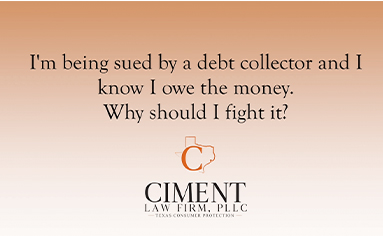We're here to help you.
833-779-9993

Credit Reporting Errors (FCRA)
The Fair Credit Reporting Act (FCRA) is a federal law that regulates how credit reporting agencies, creditors, and collection agencies handle your personal and financial information. The FCRA gives you the right to access, dispute, and correct any errors in your credit reports, as well as to limit who can access your credit information and for what purposes.
Unfortunately, many credit reporting agencies, creditors, and collection agencies do not comply with the FCRA and violate your rights. Some of the common violations include:
- Misreporting of identity theft incidents
- Merged credit files
- Unauthorized credit inquiries
- Inaccurate public records
- Stale or re-aged debts
- Incorrect reporting of debts that have been discharged in bankruptcy
These violations can have serious consequences for your financial well-being. They can lower your credit score, prevent you from getting loans, mortgages, credit cards, or other financial products, increase your interest rates, or damage your reputation.
Potential Financial Compensation:
If you have been a victim of credit reporting errors, you may be entitled to compensation under the FCRA. The FCRA allows you to sue the credit reporting agency, creditor, or collection agency that violated your rights and recover damages, including:
- Actual damages, such as lost opportunities, higher costs, or emotional distress
- Statutory damages, ranging from $100 to $1,000 per violation
- Punitive damages, if the violation was willful or malicious
- Attorney's fees and costs, if you win the case
However, filing a lawsuit under the FCRA can be complex and challenging. You need to gather evidence, follow the legal procedures, and prove your damages. That's why you need the help of an experienced and dedicated law firm that specializes in FCRA cases.
How The Debt Defenders Can Help:
At The Debt Defenders, we have the knowledge, skills, and resources to fight for your rights and get you the compensation you deserve. We have helped thousands of consumers like you who have suffered from credit reporting errors and violations. We will:
- Review your credit reports and identify any errors or violations
- Send dispute letters to the credit reporting agencies, creditors, or collection agencies on your behalf
- File a lawsuit if they fail to comply or offer a fair settlement
- Represent you in court and handle all the legal aspects of your case
- Keep you informed and updated throughout the process
The timeline of a lawsuit can vary depending on the facts and circumstances of your case, but generally, it involves the following steps:
- Discovery: This is the phase where both parties exchange information and evidence related to the case, such as documents, records, or witness statements
- Depositions: This is the phase where both parties question each other or their witnesses under oath, usually in front of a court reporter
- Mediations: This is the phase where both parties try to reach a settlement with the help of a neutral third-party mediator, who facilitates the communication
- Trial: This is the phase where both parties present their arguments and evidence to a judge or jury, who decides the outcome of the case
We will guide you through each step and advocate for your best interests. We will not charge you any fees unless we win your case.
The FCRA serves as a powerful tool to protect consumers' rights in the realm of credit reporting. If you believe your rights have been violated and you've been denied credit as a result, The Debt Defenders are here to help you navigate the legal process, seeking justice, and potential financial compensation on your behalf. Contact us today to explore your options and take the first step towards reclaiming your financial well-being.
About us
Inaction Can Lead To Judgment Against You
Some debtors choose to ignore a debt collection lawsuit. They don’t feel they have a legal defense, so they don’t respond to the lawsuit. If you don’t respond to the lawsuit, the creditor will not be challenged in court. That means the court might enter a default judgment against you, even if the paperwork contains errors. Hire a debt lawsuit defense lawyer in Texas to defend your case instead.
About usdebt collection faq
GET A PERSONALIZED DEBT RESOLUTION SOLUTION how can the debt defenders help?





